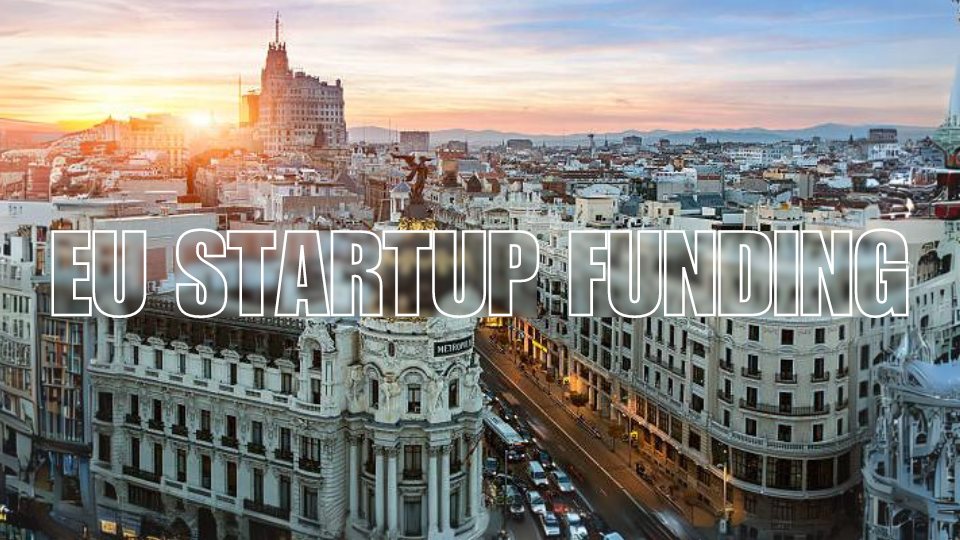

A significant decline in European startup funding is highlighted in a recent Atomico research on the continent’s digital scene. This decline is mostly attributable to inflation, rising interest rates, and geopolitical unpredictability. It is anticipated that European startups will raise roughly $45 billion this year, a substantial decrease from the $85 billion they raised in 2022. The yearly report provides a thorough summary of the present situation regarding tech investment in Europe.
A noteworthy finding of the paper is the reduction in funding from Seed to Series C, with a more noticeable effect on later-stage firms. It is anticipated that there would only be 7 new unicorns (startups valued above $1 billion) in Europe this year, compared to 48 in 2022 and 108 in 2021. This is indicative of a larger pattern of lower investment levels in European startup funding.
On the other hand, Atomico offers a bright spot, speculating that the extraordinary funding activity in 2021 and 2022 was an aberration, propelled by reduced interest rates, heightened technology use during COVID-19, and significant investor funding. When these anomalous years are taken out of the picture, the present investment pattern seems to have a more steady, moderate development slope.
The fact that the entire value of the European tech ecosystem has recovered to $3 trillion in 2021, from a $400 billion decline in 2022, is another encouraging sign. Since most fundraising rounds are either flat or up rounds, the impact of down rounds is mitigated by the money raised by new firms, which is why there has been a rebound. The bulk of follow-on money has been deployed through flat or up rounds, the research notes, demonstrating a robustness in the European startup funding market, despite a rise in down rounds.
The data used in Atomico’s analysis comes from third-party sources like as Dealroom and CrunchBase, and it is based on polls conducted with investors and businesses. This thorough approach provides a balanced perspective on the situation of tech investment in Europe today.
The reduction of crossover investors—those who make investments in both private and public IT companies—in Europe is another topic covered in the research. Many investors, including well-known companies like Tiger Global, have drastically scaled back their operations in the area. These investors participated in almost 100 mega-rounds in 2021, but in 2023 they have only made four investments, suggesting a cautious approach because of the underwhelming performance of tech startups.
The frequency of nine-figure investment rounds has also been impacted by the departure of crossover investors. There were only 36 rounds of $100 million or more in the first nine months of 2023, compared to hundreds in the years prior. This reduction underscores the particular difficulties facing European startup funding and is incongruent with other funding patterns.
The survey also shows that entrepreneurs are raising money at lower values at nearly every level, particularly at later stages. The median values of startups in Europe are still 30% to 60% less than those of their American counterparts. This change towards longer-term averages in Europe reflects trends observed in the U.S., with investment declining at practically every stage from Seed to Series C, except for Seed stage financing in the U.S., which continues to climb, albeit at a slower pace.
Fascinatingly, the research shows that investment in Europe is not primarily driven by artificial intelligence, despite the technology industry’s current obsession with it. Rather, climate technology has become the main field, taking up 27% of all capital invested in European tech in 2023, especially in the Carbon and Energy industry. This is over twice as much money invested in this industry as was done the year before, outpacing industry giants like software and finance & insurance.
The Atomico research, in conclusion, offers a complex analysis of European startup funding in 2023. There are obstacles to overcome, like lower funding and crossover investors pulling out, but there are also indications of a sound, long-term growth pattern. A dynamic movement in the priorities of the European tech sector is also indicated by the shift in investment focus towards climate tech. <<Source>>
Dear Reader,
First, thank you for your precious time reading the stories (without paywalls) I publish on Startups to Enterprises covering the EU, China, the US, and India. Second, I request you to contribute financially (any amount) to help me sustain this as an independent digital business news media.
If I receive a request for a sponsored post, I ensure I see merit that is meaningful for erudite and informed readers like you. In the bargain, I lose out on sponsorships wherein I need funds to sustain this effort. Your contribution helps me stay afloat.
Please note that your contribution is treated as revenue generated and not a donation; hence, there are no 80G or other donation certificates. In fact, as I am eligible to pay for the revenue generated, I will pay taxes on the same.
You deserve to know that I abide by journalistic ethics and practices to ensure I tell the stories as is, unbiased. You can follow us on Facebook, Linkedin, and Twitter, bookmark us on Google News, and finally, PayPal us here.
Founding Editor
Linda Ashok

